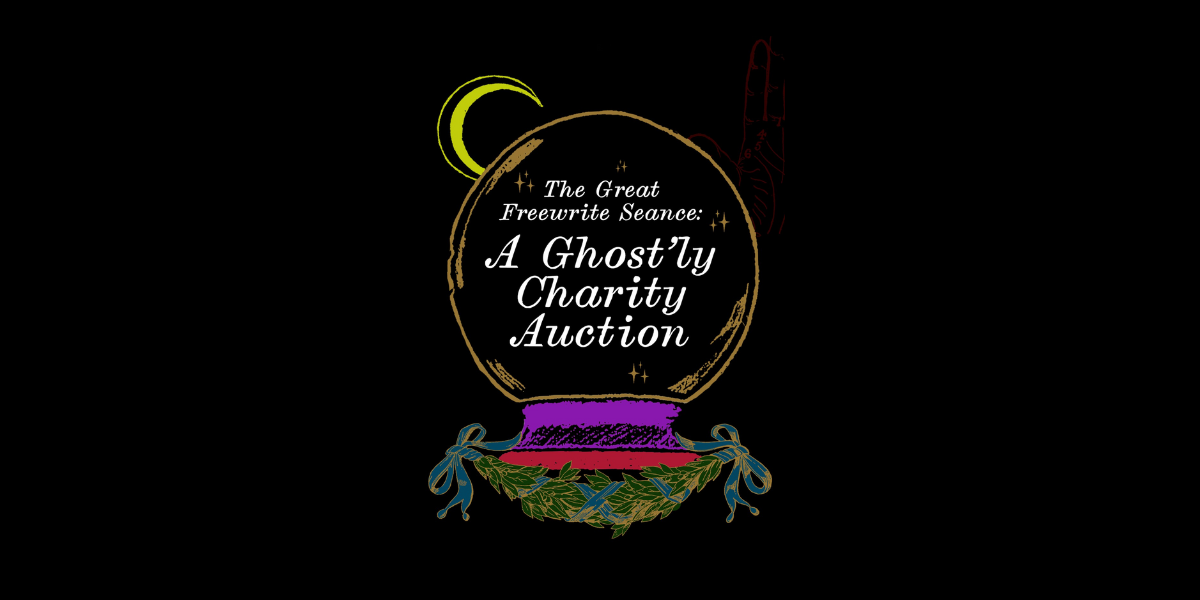
An advisee of Toni Morrison's once wrote in Lilith Magazine about a conversation the two had about motherhood. Rachel Kadish writes that a teacher of hers had opined that "female novelists who had children were dooming their writing lives."
When she mentioned this to Morrison, whose work often drew from her experience as a single working mother of two, the famed writer's response was unconcerned: "Yes, they always say that."
We know Morrison's legacy is proof enough: your writing self is an integral part of your being and parenthood will only enrich your writing. Yet, sometimes, when you're in the midst of the hectic life as a writing parent, it can feel like that writing teacher had a point.
How do you write when there are so many other important things to consume your time?
Writing Through The Chaos
Poet, Author & Freelance Writer Shell Sherwood moved from Michigan to Boston without knowing anyone – just for fun — and eventually found herself in New York, where she now lives with...
- 4 kids of her own
- 4 bonus kids
- an amazing partner who supports her writing dreams to the fullest
- 1 rescue dog
- 2 cats
- 5 fish
- 1 snail
- and 1 leopard gecko
As Shell says, "That's a lot of noise, a lot of different personalities, a lot of mess, and a lot of chaos ... but we love it."
How in the world does Shell write in that kind of chaos?
"Oh boy," Shell says. We sat down with Shell to ask her to elaborate — and walk us through the specific difficulties that come with writing through parenthood, where she finds support, and her advice for writing parents.

OK. Let's get into it. How do you juggle writing and parenting?
Shell: Writing while parenting is all about time management and creativity. Not just creativity in the sense of what you will be writing but creativity in how you will write that day. How and where are you going to be able to get words down?
Being a parent is like succumbing to Murphy’s Law every day. You can plan an entire writing schedule around your kid’s school, sports, parties, family gatherings, doctor appointments and all the things, but that can all change in a second. You can’t predict the snow days or bus delays. You never know when one of your kids is going to get sick or decide to take a sled down the basement stairs. Kids are predictably unpredictable, so you basically have to carry your work around wherever you go, waiting for the chance to get something done. That's why I write on the Freewrite Traveler.
I have the very first Traveler. I was one of the ones who pre-ordered and anticipated its release. I’ve written on the bathroom floor, lying down next to cribs, in the woods on a broken tree, at the park, in the car, and everywhere else I thought I might be able to catch some time.

Let's get practical. What does your writing life look like?
I write all day long! I work as a freelance writer, crafting blogs and different types of content for various industries.
I wake up in the morning and start the day on my Traveler, dumping all my creative ideas and plotting by candlelight before the kids wake up. Then, I switch over to my work to-do list, which changes every week. In between and at night after the kids go to bed (if I can stay awake), I’m back on my Freewrite to work on my creative projects.
Do you like to share the practice of writing with your kids or is it "me" time?
Both! My kids were interested in reading, writing, and art when they were very young, so I set up my home as a free-for-all creative space.
I sometimes write with my kids, meaning I help them with their own stories, and I also have time when we write together in the same room but work on our own projects. Then there are the times I write totally alone, mostly when I’m in my poetry head and cannot handle distractions at the risk of losing my flow.
I think it’s good for kids to see their parents need space to be creative. It humanizes us in an important way and shows that parents (especially mothers) still have dreams and goals.
So you're saying it's important for your kids to see you be creative, too?
Yes. My children value creativity and see the creative arts as more than just a hobby. That’s extremely important to me as a creative parent.
Right now, I’m working on my first poetry collection; a mix of dark and raw pieces focused on the hardships women and mothers face through life, relationships, separation, and loss of self.
I also write silly children’s stories geared around the chaos of blended family life and the shenanigans that come with a big family. When I want to write kid-lit, I gravitate toward anything by Mo Williem, Laurie Keller, or I let my kids lead me through the library for new ideas.
I also have a few drafts of psychological thrillers in my Traveler that I’ve been working on for a few years now. I’m still working out what type of novel I want to venture into but the ideas are there.

What’s your #1 piece of advice for writers struggling to juggle writing and parenting?
Patience with yourself and the stage of life that you are in.
Expect your plans to go out the window and for something unexpected to happen. You can be strict with yourself – set a schedule, plan writing time, create deadlines – but don’t beat yourself up or feel less than when you don’t adhere to the plan.
As a parent who writes, you aren’t working with the same cards as the rest of the writing community. You have a family to support and connect with. There is a balance you have to maintain that writers who do not have kids will never understand. So don't compare yourself to them. Any time you get to write, be proud. Celebrate every step closer to your writing dreams.
Also, find writing friends who are also parents. I have been a part of a writing community called Moms Who Write for 4 years now. It’s probably the only reason I’ve come this far with my writing goals.
Writers who are in the same parenting phase as you can help you make achievable goals and provide much-needed support when you need it most. Support from like-minded people is everything, especially in a career like writing, where you are mostly alone.
Thanks for joining us and sharing your writing journey, Shell!

The Liberation of Motherhood
Toni Morrison once famously called motherhood "liberating." When Journalist Bill Moyers pointed out that this wasn't the common perception of motherhood, Morrison explained that her children demanded a version of her that nobody else had. A version unlike what the world had taught her to conform to — a version without baggage and vanity. A version she liked.
"Somehow all of the baggage that I had accumulated as a person about what was valuable just fell away. I could not only be me — whatever that was — but somebody actually needed me to be that …"
And isn't that free, true self the exact person we want to bring to our writing?
--
Shell Sherwood lives and writes in Hudson Valley, New York. You can read her poetry and narratives in several anthologies, including The Order of Us, The Magic of Us, The History of Us, and Venus Rising.
She also publishes blogs on Moms Who Write. Learn more about Shell on her website, shellsherwood.com, or follow her on Instagram or TikTok.






























